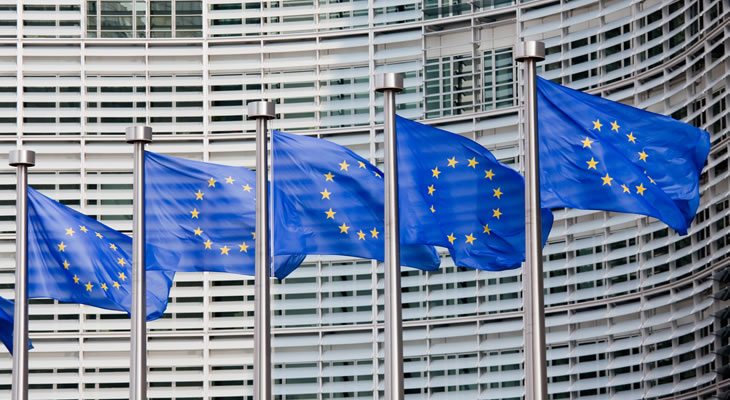GBP/EUR Exchange Rate Edges Higher as Eurozone Faces Crisis Beyond Financial Crisis
The Pound to Euro (GBP/EUR) exchange rate rose this morning, with the pairing currently trading around €1.143.
The Euro (EUR) has continued to dip today after yesterday saw Eurozone factories suffer a ‘breath-taking crash’ after manufacturing output plunged to record lows in April.
Manfred Huebner, the Managing Director at Sentix, commented:
‘The economy in the Eurozone has experienced a breath-taking crash in recent weeks. [The] collapse goes far beyond the distortions caused by the financial crisis.’
The Sentix Eurozone Investor Sentiment Index plummeted to -41.8 in May, falling below expectations of -33.5. As a result, this weighed market confidence in the single currency as the bloc’s economic outlook continues to darken.
Meanwhile, today saw the European Central Bank (ECB) governing council member, Jens Weidmann, comment that Germany had entered a severe economic recession.
However, Mr Weidmann also added that an economic recovery could be sustainable once the coronavirus pandemic had been overcome.
Euro (EUR) investors will be eyeing the German constitutional court’s ruling on the legality of the ECB’s Public Sector Purchase Programme (PSPP) today. As a result, if the ruling is granted the ECB’s Pandemic Emergency Purchase Programme (PEPE) would commit a further €750bn of purchases this year alone.
Pound (GBP) Rises as UK Trials Covid-19 Tracing App in Isle of Wight
The Pound (GBP) rose today as the Isle of Wight begins its coronavirus contact-tracing app trial. As a result, Sterling traders have become more optimistic over the UK’s progress with the coronavirus crisis.
Health Secretary Matt Hancock has also been discussing ways of getting employers back to work, despite fears over workspace hygiene issues. Mr Hancock said:
‘It’s critical that employers offer safe workplaces. We’ve been working with employers, large and small, and trade unions on getting these details right. There’s further discussions going on this week, so that as and when more people can get back to work there are guidelines and rules in place to make sure that workplaces can have safe distancing in the workplace.’
Meanwhile, today saw the UK Government release Sage pandemic advice papers, which showed that the scientific advisory group wanted lockdown measures to be lifted very gradually.
In UK economic news, today saw the release of the Market Services PMI for April. The figure rose to a better-than-expected 13.4 despite forecasts of a 12.2 decrease.
Duncan Brock, the Group Director at the Chartered Institute of Procurement & Supply, commented:
‘Though a further downturn was anticipated after last month’s historically low figures, the scale of this fall is unnerving. A significant number of businesses in shutdown now may never reopen. Even with some movement in the lifting of restrictions on business activity, the UK economy is not a tap that can just be turned on. The flow of activity will take planning, Government support and an end to the pandemic in sight to have a strong effect on the biggest driver in the UK economy.’
GBP/EUR Forecast: Euro to Suffer From Weak Economic Data
Euro (EUR) investors will be awaiting tomorrow’s release of the European Commission’s Economic Growth Forecast report. If, as is expected, this is notably gloomy, then we could see the single currency continue to sink.
Meanwhile, tomorrow will also see the release of the final Eurozone Markit PMI Composite figure for April. However, with the bloc’s economic outlook expected to darken due to Covid-19 this is unlikely to provide much uplift for the single currency.
The GBP/EUR exchange rate will be driven by coronavirus developments this week. However, if Downing Street announces lockdown easing measures, we could see Sterling rise on hopes for the British economy’s recovery.


Comments are closed.